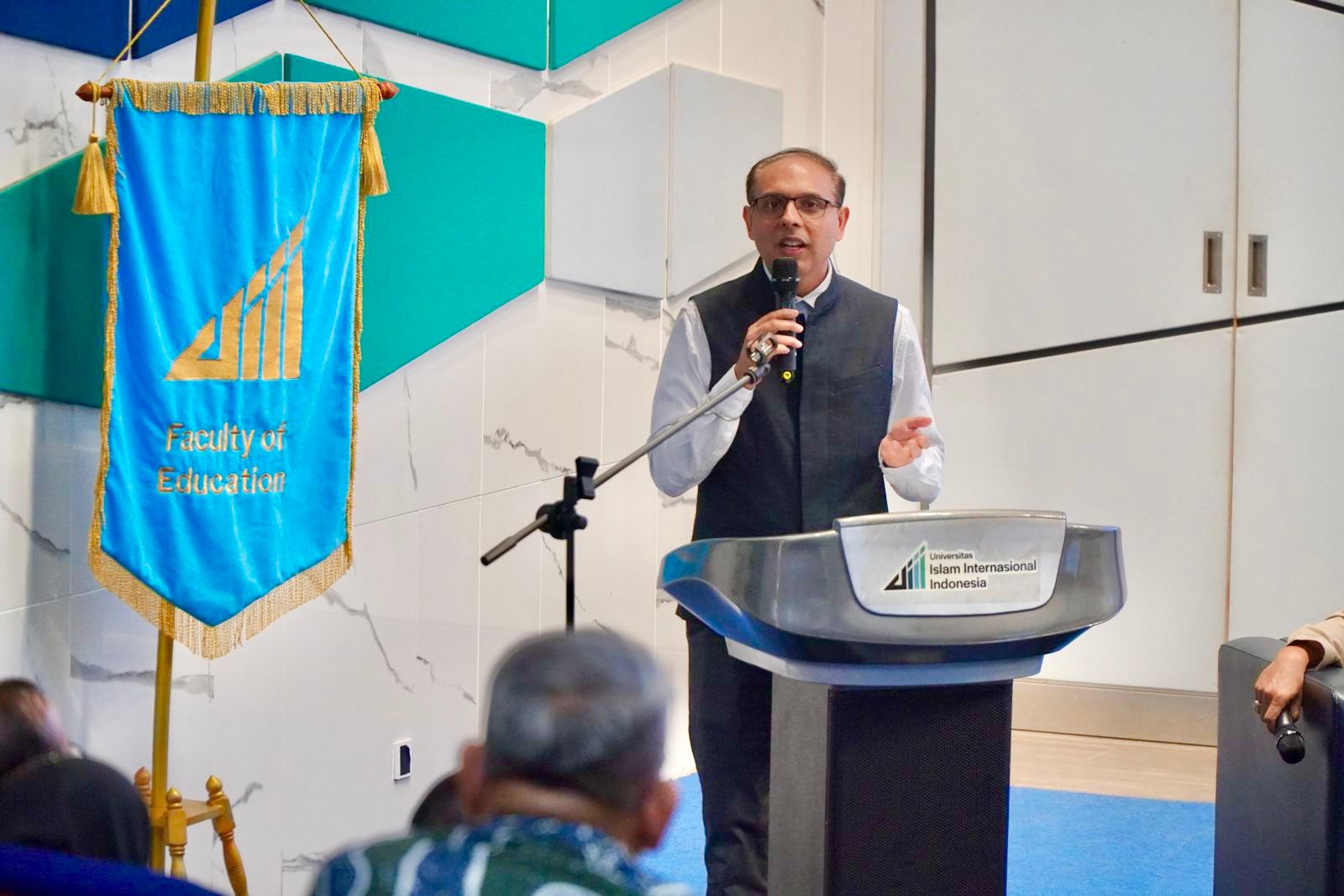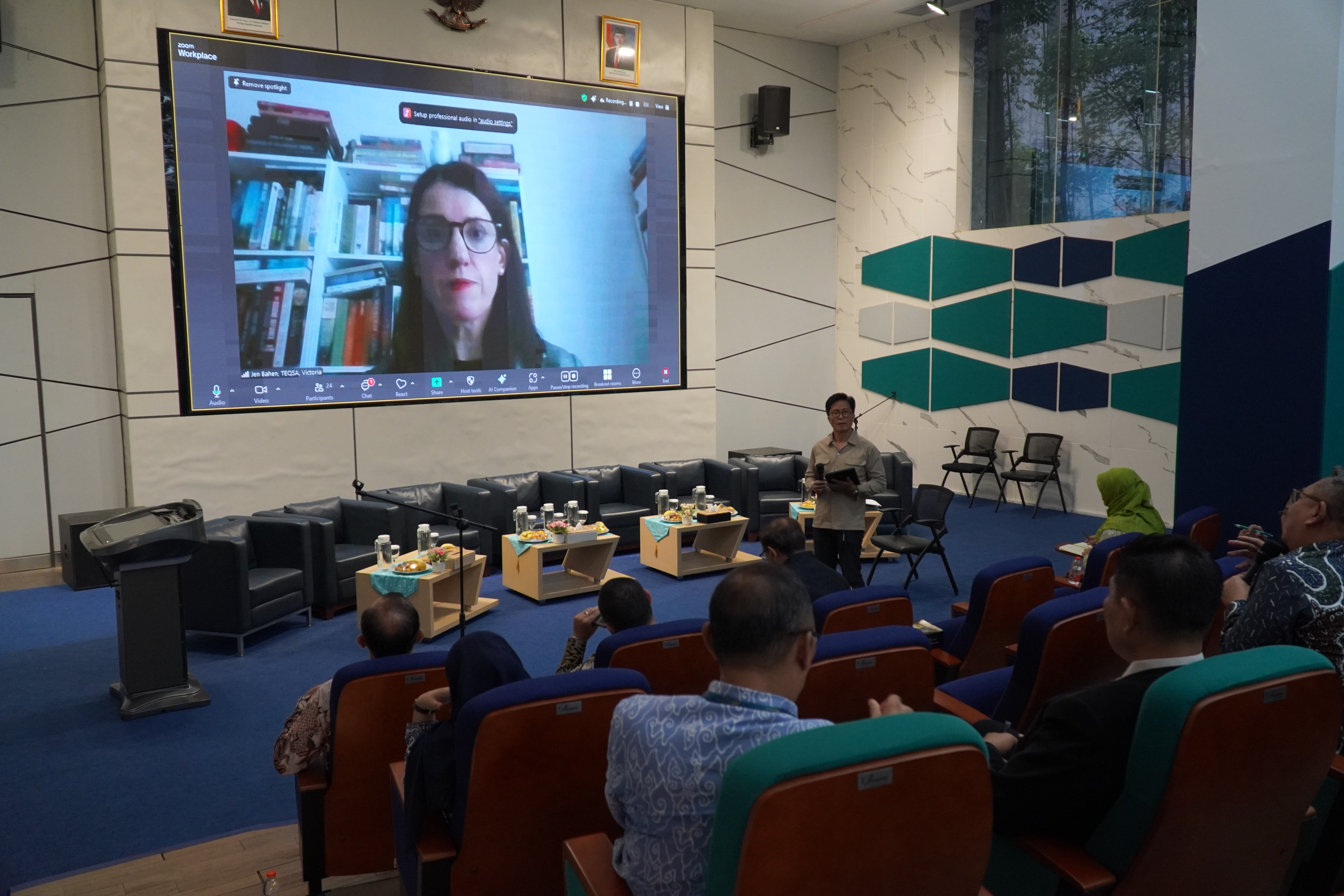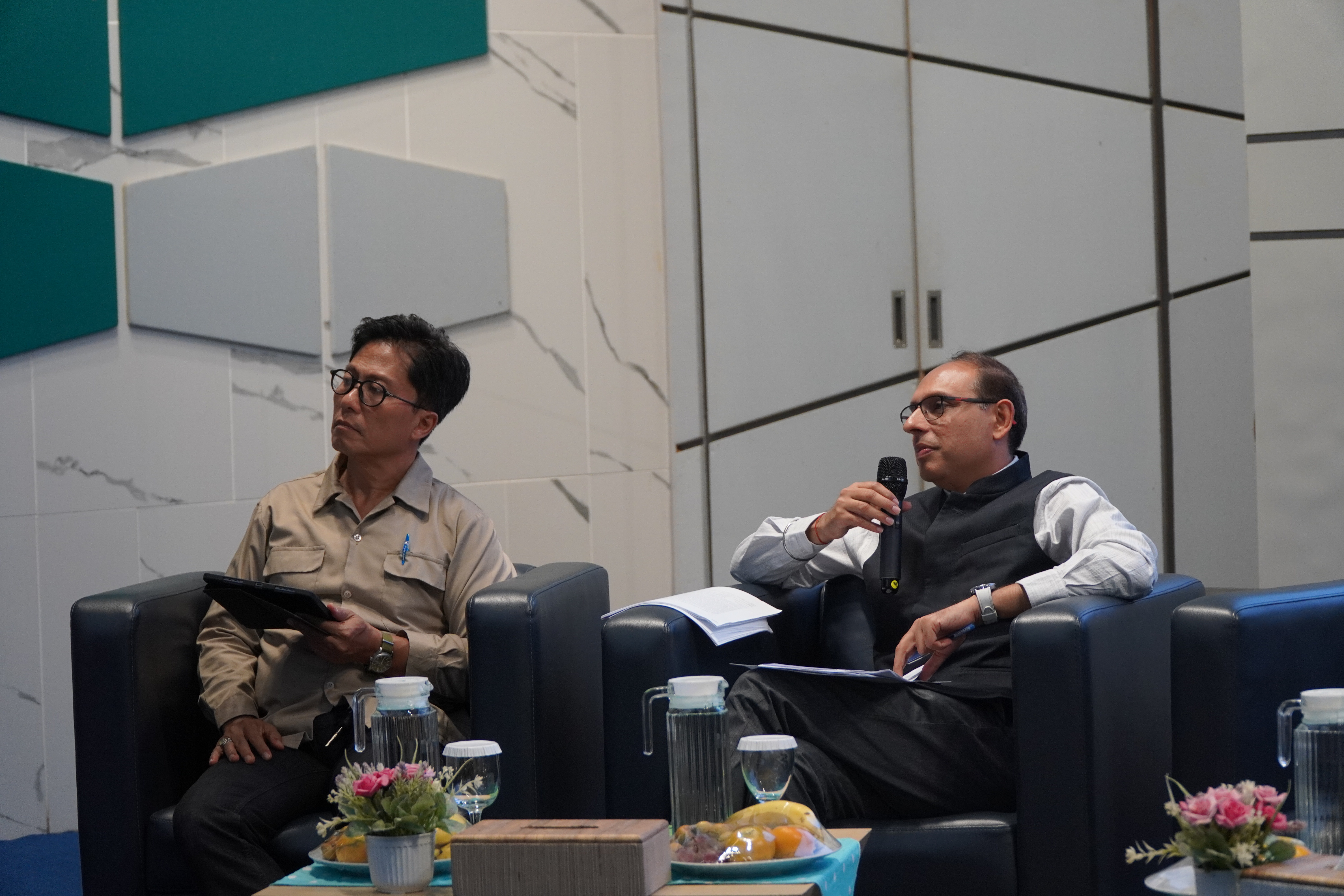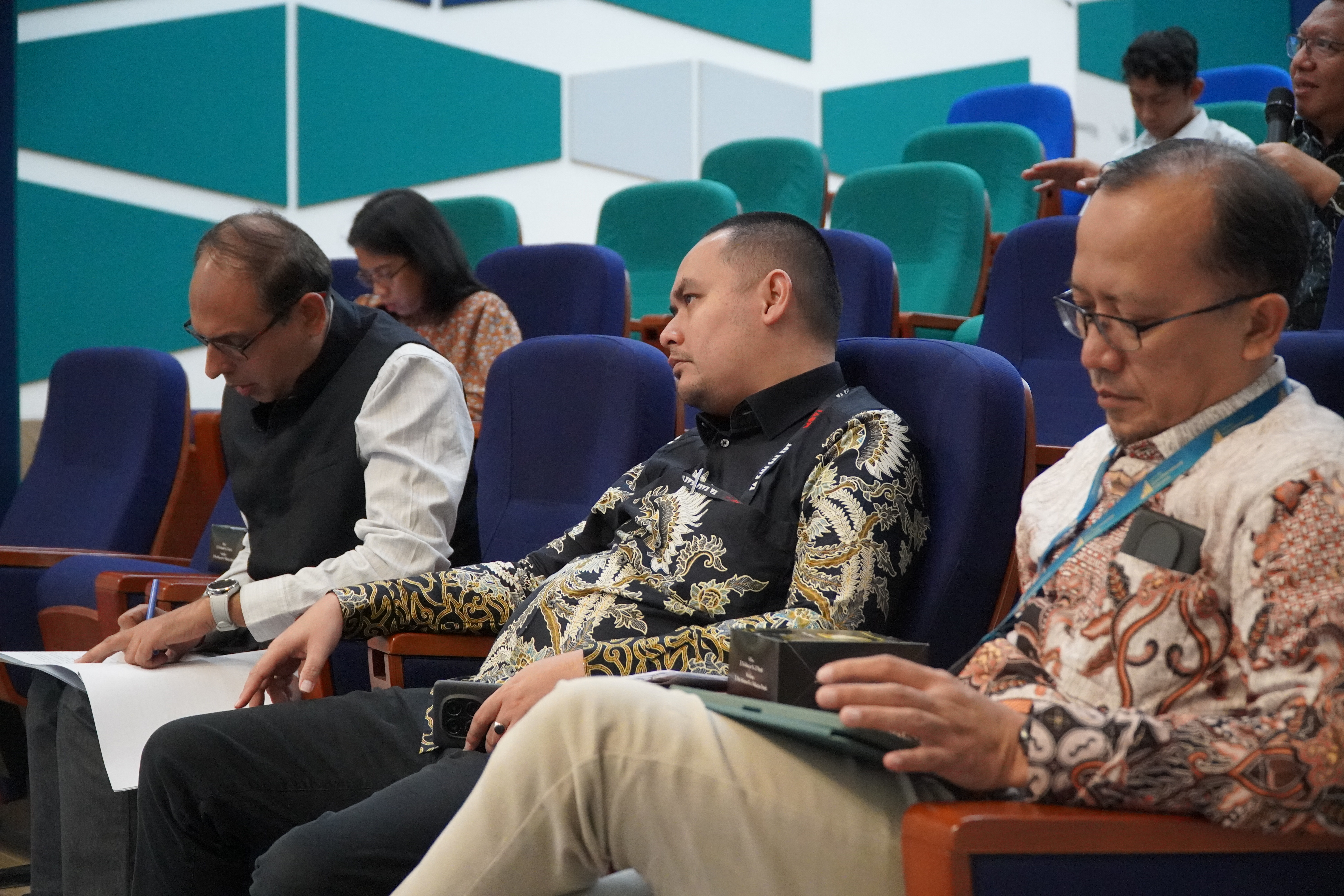More From News
UIII Builds a Bridge to Costa Rica
February 26, 2026
September 29, 2025
Contributor & Photo by: Virda Lalitya Umam

Two years post-enactment of the Minister of Education, Culture, Research, and Technology Regulation No. 53/2023 on Quality Assurance of Higher Education, whether to retain the hierarchical system entirely or to shift to a binary classification remains an ongoing discourse in Indonesia.
To shed some light on this topic, the Faculty of Education at Universitas Islam Internasional Indonesia (UIII) hosted a seminar titled Rethinking Accreditation Policy in Higher Education, moderated by R. Alpha Amirrachman, PhD, lecturer at the Faculty of Education. This seminar, part of a two-session event under the same title, aims to draw lessons and best practices in higher education accreditation from our neighboring nations.
 The first speaker to present was Jen Bahen, Regulatory Operations Executive Director at the Tertiary Education Quality and Standards Agency (TEQSA) in Australia. Ms. Bahen, who joined this session via Zoom, explained that Australian higher education providers must be registered under TEQSA as the national regulator and have this registration renewed every seven years. While certain providers, mainly universities, can self-accredit their courses, others without such authority must have their courses accredited by TEQSA instead. That being said, Australia assigns a binary system for both provider registration and course accreditation.
The first speaker to present was Jen Bahen, Regulatory Operations Executive Director at the Tertiary Education Quality and Standards Agency (TEQSA) in Australia. Ms. Bahen, who joined this session via Zoom, explained that Australian higher education providers must be registered under TEQSA as the national regulator and have this registration renewed every seven years. While certain providers, mainly universities, can self-accredit their courses, others without such authority must have their courses accredited by TEQSA instead. That being said, Australia assigns a binary system for both provider registration and course accreditation.
As stated by Ms. Bahen, the primary goal of Australia’s accreditation is more to ensure providers’ compliance than to drive improvement. Nonetheless, the criteria for their assessment are more student-centric—if students and graduates are satisfied and achieve good outcomes, then the provider would be considered successful in their education, despite not holding any hierarchical accreditation title. Ms. Bahen also detailed TEQSA’s stance as a risk-based regulator, utilizing risk to balance a rigorous accreditation process with the administrative burdens placed on providers. TEQSA emphasizes assessing a provider’s high-risk aspects compared to those with significantly lower risks.
 The following speaker was Kamal Khurana, Acting Director of the Jawaharlal Nehru Indian Cultural Center (JNICC), part of the Embassy of India in Indonesia, who gave an overview of India’s higher education accreditation practices. In India, accreditation for higher education providers is primarily handled by the National Assessment and Accreditation Council (NAAC), an autonomous body under the University Grants Commission (UGC). They follow a three-step process of self-study, peer review, and grading, emphasizing criteria such as curriculum, teaching and learning, research, student support, governance, and institutional values. Recently, India has shifted to a binary accreditation system of Accredited and Not Accredited to increase transparency and simplify administrative processes.
The following speaker was Kamal Khurana, Acting Director of the Jawaharlal Nehru Indian Cultural Center (JNICC), part of the Embassy of India in Indonesia, who gave an overview of India’s higher education accreditation practices. In India, accreditation for higher education providers is primarily handled by the National Assessment and Accreditation Council (NAAC), an autonomous body under the University Grants Commission (UGC). They follow a three-step process of self-study, peer review, and grading, emphasizing criteria such as curriculum, teaching and learning, research, student support, governance, and institutional values. Recently, India has shifted to a binary accreditation system of Accredited and Not Accredited to increase transparency and simplify administrative processes.
Another aspect Mr. Khurana highlighted is how India accommodates the right to education as a whole. India has a broad selection of higher education providers, such as central and state public universities, deemed universities, institutions of national importance, autonomous colleges, and standalone institutions, to name a few. This diverse range ensures a wide array of options for students, catering to various interests and specializations. Additionally, since many students in India come from economically disadvantaged families, the government provides significant subsidies to support their education journey, among them for books, reading materials, and scholarships.
 From the two speakers, we can reflect on a few things that their respective countries have implemented in higher education accrediting: putting more attention to areas that each institution struggles with, using assessment criteria that center more on the outcomes of students and graduates, and providing equitable financial support for teaching and learning activities. This seminar, alongside the prior Focus Group Discussion (FGD), affirms UIII’s support in formulating accreditation policies as not mere shows of force but tangible, data-driven efforts to reform Indonesia’s education system.
From the two speakers, we can reflect on a few things that their respective countries have implemented in higher education accrediting: putting more attention to areas that each institution struggles with, using assessment criteria that center more on the outcomes of students and graduates, and providing equitable financial support for teaching and learning activities. This seminar, alongside the prior Focus Group Discussion (FGD), affirms UIII’s support in formulating accreditation policies as not mere shows of force but tangible, data-driven efforts to reform Indonesia’s education system.
Universitas Islam Internasional Indonesia